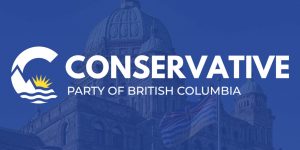Today the Vancouver Sun published an opinion piece that I recently wrote.
Undoubtedly, the COVID-19 pandemic has introduced uncertainty into all echelons of daily life. But uncertainty need not inspire fear. Uncertainty is the precursor to innovation and innovation is the precursor to change. We are offered two choices today. To fear uncertainty and to fear change, or to see this generational challenge as a generational opportunity.
Below I reproduce the text of the opinion piece. The original is available on the Vancouver Sun website.
Text of Article
It’s been just over two months since BC declared a state of emergency in response to the COVID-19 pandemic and only a few days since relaxed restrictions were introduced in stage 2 of our provincial response. Yet judging from the myriad communications my office receives, British Columbians are still very nervous about the future.
While various commentators are suggesting we are heading into a “new normal” for business and, more generally, society as a whole, it’s far from clear what that “new normal’ looks like. Therein lies an incredible opportunity for the creation of long-term socially, environmentally and fiscally resilient and sustainable policies for British Columbia. For right now “uncertainty” seems to be the only thing “normal” in our daily lives.
Every challenge, whether it be global climate change, poverty reduction, the opioid crisis, the changing nature of work or even the COVID-19 pandemic, presents us with an opportunity for creativity & innovation; in other words, an opportunity to do things differently moving forward. For often the single biggest impediment to change is fear of the uncertainty that it will bring. Many entrench and defend themselves in the comfort of the status quo.
Jurisdictions that emerge from the COVID-19 pandemic stronger than before the deadly virus took hold will be those that adapt and respond in a timely fashion. Standing by and waiting for the holy grail of a vaccine or herd immunity, which may or may not ever occur, is simply not an option.
We are incredibly fortunate to live in British Columbia. Our provincial response to the pandemic to-date has been nothing short of exceptional. We’ve had calm, collected, evidence-based leadership by provincial Health Officer Bonnie Henry and Health Minister Adrian Dix. And most individuals and business have responded quickly to their requests, suggestions and orders.
As a direct consequence, British Columbia is now in a position to capitalize on the opportunities for change that the COVID-19 pandemic has created. But this will require an ongoing commitment to focus on the sage advice offered in a number of reports that were recently presented to the province.
On January 30, B.C.’s Food Security Task Force report was publicly released. “The Future of B.C.’s Food Systems” issued four recommendations designed to situate BC on an innovation pathway to capitalize on our strategic advantages in this sector. The report notes that the Netherlands ranks 131st in the world in terms of land area but is the world’s second largest exporter of agricultural goods. This is only possible because of the country’s focus on high value products, investments in innovation ecosystems, support for supply chain development, and strong land use policies. That’s what we should be doing in BC.
On May 11th the Emerging Economy Task Force final report was publicly released with 25 recommendations to assist British Columbia capitalize on global trends and technological advancements in the years ahead. That same day the final report from BC’s inaugural Innovation Commissioner, Dr. Alan Winter, was also publicly released. Dr. Winter provided five recommendations to government to encourage and assist the transformation of our economy to one that is resilient, based on our strategic strengths, and ready to lead in the 21st century.
And we will soon learn more from three distinguished scholars who are putting the finishing touches on their report exploring the role that basic income might play in reducing poverty and preparing for the emerging economy. A sneak peak of what we might expect from them appeared in an article entitled “Considerations for Basic Income as a COVID-19 Response” that was published Thursday by the University of Calgary’s School of Public Policy.
A common theme in all these reports emerges. In light of the threat of pandemics, growing income inequality, and climate change, as well as the changing nature of work, modern economies need to quickly prepare. What has worked in the past will not work in the future.
As British Columbia emerges from the COVID-19 pandemic over the next year or so, we must learn from our mistakes and capitalize on opportunities that have arisen. The global shortage of protective medical equipment highlighted the importance of shoring up local supply chains and ensuring we have diversified manufacturing capacity locally. The complete chaos unfolding in the United States and Brazil as COVID-19 runs rampant there also underpins the importance of evidence-based decision-making in policy formulation.
British Columbia must also rethink its approach to the resource sector. Globalization has meant that we’ll never compete with jurisdictions that don’t internalize the social and environmental costs of resource extraction unless we are smarter, more efficient, cleaner and innovative in our extraction methodologies, and focus on value-added products for export. Sadly, our approach in recent years has been to literally give away our raw natural resources with little focus on the long-term effect this will have on the well-being and sustainability of rural BC.
British Columbia has three strategic advantages that set it aside from other jurisdictions around the world. 1) British Columbia is one of the most beautiful places anywhere to live. As such, we can attract to BC and retain the best and brightest worldwide because of the quality of life and the stable democracy that we can offer. 2) We have one of the best K-12 and postsecondary education systems in the world. They produce a highly skilled and educated workforce ready to meet the challenges of the 21st century. 3) We have boundless renewable resources in the form of clean energy, wood, water and agricultural land. And we have an economic plan embodied in CleanBC that recognizes these strategic strengths at its very core.
We should be using our strategic advantage as a destination of choice to attract industry to BC in highly mobile sectors that have difficulty retaining employees in a competitive marketplace. We should be using our boundless renewable energy resources to attract industry, including the manufacturing sector, that wants to brand itself as sustainable over its entire business cycle, just like Washington and Oregon have done in attracting a large BMW manufacturing facility and Google data centre to their jurisdictions.
We should be setting up seed funding mechanisms to allow the BC-based creative economy sector to leverage venture capital from other jurisdictions to our province. Too often the only leveraging that is done is the shutting down of BC-based offices and opening of offices in the Silicon Valley.
Undoubtedly, the COVID-19 pandemic has introduced uncertainty into all echelons of daily life. But uncertainty need not inspire fear. Uncertainty is the pretext to innovation and innovation is the pretext to change. We are offered two choices today. To fear uncertainty and to fear change, or to see this generational challenge as a generational opportunity. I prefer the latter and I’m excited to continue working with the BC NDP government in our attempts to capitalize on this opportunity.














